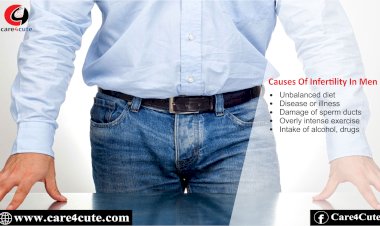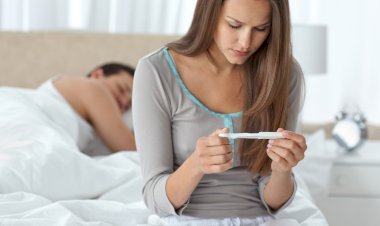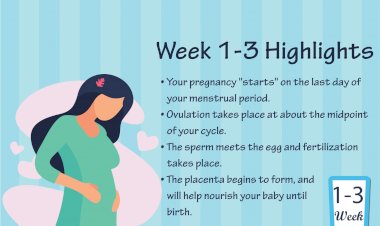Precautions After Embryo Transfer

Embryo transfer is the last stage of the IVF procedure. The success rate of this assistance reproduction process largely depends on the embryo and their capability to implant it in the uterus perfectly. Then the patient needs to wait for at least 2 weeks to find out if the pregnancy has happened or not. A lot of patient have a lot of questions and misconceptions about this two week wait.
Should they go for complete bed rest? Can they do anything to increase their chance of getting pregnant? What medications do they need to take? Should they go for sexual intercourse? One important question is what are the precautions that you need to take after embryo transfer!
How many embryos are transferred?
Well, the count of embryo to be transferred during one IVF cycle is a matter of debate. A lot of medical professional agree to transferring less than 4 embryos in one IVF cycle to get positive results.
Transferring over 4 embryos may result in larger number of several pregnancies leading to rise in complications. Transferring 4 embryos rather than going for 1 or 2 enhances your chance of pregnancy along with the risk that all 4 may implant.
Thus, after implantation, the major concern is the risk involved with embryo transfer. You have minimum risk linked with embryo transfer process. This includes the loss of embryo in the implantation procedure, implantation of the embryo in the wrong place like fallopian tube. Though some women may get cramping, but apart from it, the process is painless.
Precautions after the embryo transfer -
Though the fertility experts usually recommend safety precautions after embryo transfer, they also suggest that patients should continue with their normal life and not get obsessed with the thought about their pregnancy. Use this 2 week time to relax and plan other activities that you like. Spend time with friends, family, husband to shed out your stress.
- Bed rest after the procedure: Best rest is just suggested while the patient is at the clinic for 20 to 30 minutes after the transfer is done. Once you are out of the clinic, you may continue your routine life, avoid strenuous actions but follow your normal routine.
- Do not perform strenuous physical activities: you can go out for a drive, a walk or attend your office (if the task doesn’t involve heavy weight lifting or rigorous exercising). You should also go for relaxation exercises like Tai chi and Meditation.
- Intercourse: It is suggested that you should resist sexual intercourse till you get your pregnancy results. A lot of women get large ovaries because of ovary stimulation or orgasm which may lead to uterine contraction.
- Medication to use after embryo transfer: Once you are discharged from the clinic, the doctor will give you instruction about the kind and dose of medicines that you need to take till the time you get your pregnancy results. If you feel headache or discomfort or abdominal pain after the procedure, then you can consume paracetamol for pain result.
- It is crucial to avoid baths in beach, swimming pools and tubs for prospective infections
- Consume lots and lots of fluids: It is very important to keep your body hydrated for proper cell functioning.
In case, you experience vaginal bleeding or brownish discharge after the transfer, then you should instantly consult your doctor. Though it is not a matter of concern because a lot of women who experience it have a positive pregnancy test.
But in case you have persistent feeling of vomiting, ache, short of breath, fainting, dizziness, severe bleeding or pain in abdomen, then it is important to contact your doctor immediately.
Embryo transfer is the last stage of the IVF procedure. The success rate of this assistance reproduction process largely depends on the embryo and their capability to implant it in the uterus perfectly. Then the patient needs to wait for at least 2 weeks to find out if the pregnancy has happened or not. A lot of patient have a lot of questions and misconceptions about this two week wait.
Should they go for complete bed rest? Can they do anything to increase their chance of getting pregnant? What medications do they need to take? Should they go for sexual intercourse? One important question is what are the precautions that you need to take after embryo transfer!
How many embryos are transferred?
Well, the count of embryo to be transferred during one IVF cycle is a matter of debate. A lot of medical professional agree to transferring less than 4 embryos in one IVF cycle to get positive results.
Transferring over 4 embryos may result in larger number of several pregnancies leading to rise in complications. Transferring 4 embryos rather than going for 1 or 2 enhances your chance of pregnancy along with the risk that all 4 may implant.
Thus, after implantation, the major concern is the risk involved with embryo transfer. You have minimum risk linked with embryo transfer process. This includes the loss of embryo in the implantation procedure, implantation of the embryo in the wrong place like fallopian tube. Though some women may get cramping, but apart from it, the process is painless.
Precautions after the embryo transfer -
Though the fertility experts usually recommend safety precautions after embryo transfer, they also suggest that patients should continue with their normal life and not get obsessed with the thought about their pregnancy. Use this 2 week time to relax and plan other activities that you like. Spend time with friends, family, husband to shed out your stress.
- Bed rest after the procedure: Best rest is just suggested while the patient is at the clinic for 20 to 30 minutes after the transfer is done. Once you are out of the clinic, you may continue your routine life, avoid strenuous actions but follow your normal routine.
- Do not perform strenuous physical activities: you can go out for a drive, a walk or attend your office (if the task doesn’t involve heavy weight lifting or rigorous exercising). You should also go for relaxation exercises like Tai chi and Meditation.
- Intercourse: It is suggested that you should resist sexual intercourse till you get your pregnancy results. A lot of women get large ovaries because of ovary stimulation or orgasm which may lead to uterine contraction.
- Medication to use after embryo transfer: Once you are discharged from the clinic, the doctor will give you instruction about the kind and dose of medicines that you need to take till the time you get your pregnancy results. If you feel headache or discomfort or abdominal pain after the procedure, then you can consume paracetamol for pain result.
- It is crucial to avoid baths in beach, swimming pools and tubs for prospective infections
- Consume lots and lots of fluids: It is very important to keep your body hydrated for proper cell functioning.
In case, you experience vaginal bleeding or brownish discharge after the transfer, then you should instantly consult your doctor. Though it is not a matter of concern because a lot of women who experience it have a positive pregnancy test.
But in case you have persistent feeling of vomiting, ache, short of breath, fainting, dizziness, severe bleeding or pain in abdomen, then it is important to contact your doctor immediately.





































Comments (0)